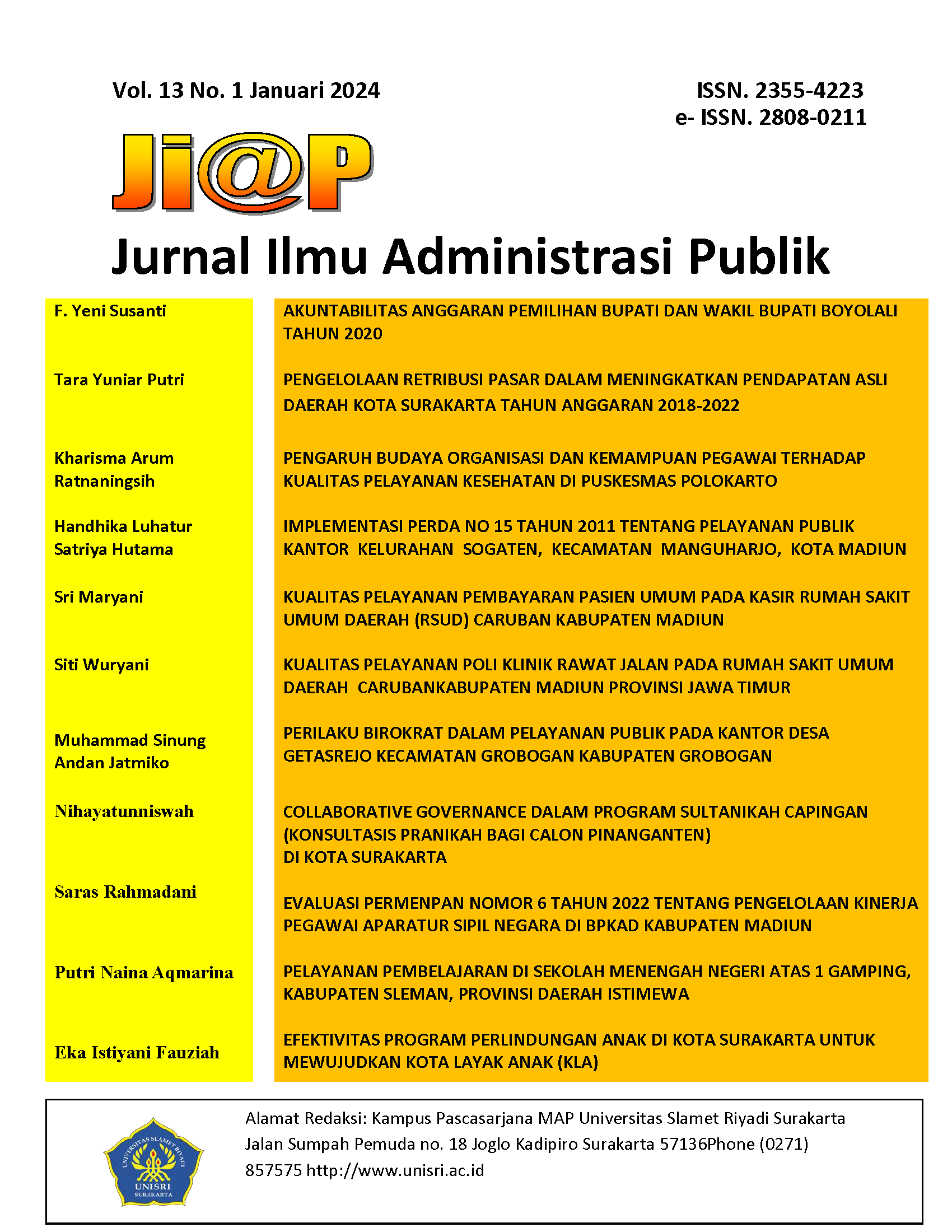COLLABORATIVE GOVERNANCE DALAM PROGRAM SULTANIKAH CAPINGAN (KONSULTASIS PRANIKAH BAGI CALON PINANGANTEN) DI KOTA SURAKARTA
DOI:
https://doi.org/10.33061/jp.v13i1.10411Abstract
Collaborative Governance in the Sultanikah Capingan Program (Premarital Consultation for Prospective Pinanganten) in Surakarta City. Research on the implementation of the Sultanikahcapingan Program which was present starting in 2020 by adopting Stephen Ballogh's Collaborative Governance theory with a qualitative approach and descriptive method. According to the theory, in Collaborative Governance a program cannot run alone without the support of relevant stakeholders who have the same motivation, commitment, goals and mission. This program involves several stakeholders, the first is DP3AP2KBSurakarta City as the project leader, 6 religious institutions organizing marriage(KUA, BAGKS, Walubi, Kevikepan, Parisada Hindhu Dharma, MAKIN) and thecommunity as the target of the program, especially prospective brides. The datafrom this study were obtained from interviews with these stakeholders using the indepth interview method, as well as through literature study. The data analysis technique uses interactive techniques according to Miles, Huberman and Saldana. In the course of this program, there has been a decrease in the number of catin (bride-to-be) target coverage who received consultation from officers. Commitmentwith stakeholders also experienced several obstacles related to implementation time, provision of venues and implementation. For this reason, the Sultanikahcapingan program was researched from the collaboration process carried out by stakeholders, so that the results of the research will be known how the process, dynamics and adaptation of the results of the Sultanikah capingan program are running. Keywords: bride-to-be, Collaborative governance, Sultanikah capingan
Downloads
Published
How to Cite
Issue
Section
License
Copyright (c) 2024 Nihayatunniswah Nihayatunniswah, Winarti Winarti, Aris Tri Haryanto

This work is licensed under a Creative Commons Attribution-NonCommercial 4.0 International License.
Authors who publish this journal agree to the following terms:
- Authors retain copyright and grant the journal right of first publication with the work simultaneously licensed under a Creative Commons Attribution License that allows others to share the work with an acknowledgement of the work's authorship and initial publication in this journal.
- Authors can separately make additional contractual arrangements for non-exclusive distribution published by the journal (e.g., publish it in a book), with an acknowledgement of its initial publication in this journal.
- Authors are allowed and encouraged to send their work via online (e.g., in the institutional repositories or their website) after published by the journal.













